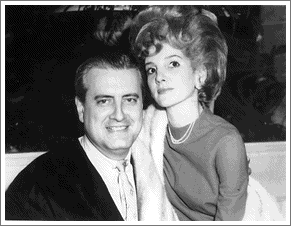As a former teacher, I remember meeting the word in all it’s awful dimensions: a student hands in an essay of exceptional, uncharacteristic clarity and eloquence, with a newly discovered gift for metaphor, and becomes defensive when questioned about sources.
It takes a while, but eventually I do locate the source: whole paragraphs copied verbatim from a youth magazine in the library. Confronted with irrefutable evidence, the student, far from being apologetic, looks me in the eye and says, “So? Who cares about a stupid essay anyway.”
Even the guilty find it easy to define cheating: passing someone else’s work as your own, “borrowing” from others, taking shortcuts when everyone else has to take the long route. We probably shouldn’t be so shocked to discover it: in most quarters of this society, taking the shortcut when everyone else is taking the long way is considered smart, shrewd, macho. It’s a sure way to prosperity and success. Donald Trump and Ivan Boesky may be vilified on the editorial page, but on the society pages, they’re kings. Oliver North may have lied to Congress and the public, and conspired to break the law, but he is growing rich peddling his Machiavellian politics to banquet halls filled with envious arm-chair rogues. Cheating is first and foremost lying.
Do we, as a Christian community, have a clear idea of what cheating is? We probably think so. We never tire of warning our children about cheating at games, or our young people about cheating at school or work, or our married couples about cheating on each other. As a Christian school teacher, I certainly thought I knew what it was. But recent experience has caused me to think twice about whether or not there is a consensus in our community about what cheating is. My question is, is taped accompaniment cheating?
Most of us have probably experienced this new approach to music by now. We attend a concert put on by school or church or club, and wonder where the sound of violins and trumpets is coming from. Soon we realize there is no orchestra: there is a tape. It sounds wonderful: musicians far more gifted and well-trained than anybody we know, playing along with familiar faces and voices from the congregation and community. The sound is clearer, better balanced, completely free of feedback and static. No flubs, except for the singers, occasionally. Nobody out of tune, except for the singers occasionally. Nobody misses their cues, except for the singers occasionally. I confess a secret wish that a fuse would blow, or that the tape would get snarled in the drive mechanism.
My first question is, why even bother with the singers? And in fact, at a recent Christian elementary school production, taped background voices were indeed added to the performance– just to make it sound a little better than it really was. “They needed a little help for that part,” so I heard. So why not go one step further, and have the students mime the lyrics, and use professional voices instead. It would certainly sound even better.
“Ah,” you say, “but then what’s the point? You could stay at home and listen to music like that anytime you want to. The important thing about a performance is… ” Well, what is it? That it’s real? That it’s live? That it’s people we know displaying their true talents?
Our society already suffers from an oversized respect for “celebrities” and “professionals”. It is in the interest of big corporations– music publishers and broadcasters– that we care as little as possible for local talent and as much as possible for famous people who live in mansions in New York or Los Angeles and never perform except when surrounded by 50 body-guards and an equal number of scantily clad dancers. Now even the Christian community sometimes prefers a tape made in Los Angeles or Nashville to the musicians in our own community. If we follow this path, we will someday have no local musicians left, for who want to compete with a multi-million dollar recording studio?
It may sound strange but I thank God everyday that the Canadian Government passed it’s Canadian content rules, requiring radio stations to play at least 33% Canadian music. If it were not for this law, we would never have heard of Spirit of the West, Bryan Adams, Crash Test Dummies, Blue Rodeo, Colin James, or dozens of other Canadian artists.
It surprises me that schools and churches– along with Karaoke bars!–are the worst culprits for this artistic shortcut. Whenever I can, I ask the people involved why they used it. Most often the reason given is expediency: it’s just too difficult to get live musicians to come out for practice and performances. People promised, but didn’t show up. It’s more convenient to use a tape. The microphones and PA equipment are a big head-ache.
Most musicians I talk to say, “If I had known that they were going to use a tape instead, I would gladly have played.”
One director was pleased to report a new minister’s opinion that the music was far superior to a live performance he had recently heard, with a real band. But what did he expect? And why should the director feel flattered by this opinion? The fact is that background tapes, because they are produced in a studio and because they are edited and mixed and enhanced in innumerable electronic ways, will always sound better than even the same musicians playing live. There is no question that for pure technical quality, nobody will ever beat a good studio recording, including the studio artists themselves.
It is an entirely different question as to whether or not technical quality is what really matters. There has always been a sizeable number of music lovers who prefer to hear live music, warts and all, because of its immediacy, it’s honesty and emotion, and the dynamic rapport between audience and performer.
But it is more convenient to use a tape, and I have some sympathy for the harassed choir director who feels she or he just can’t put up with even one more aggravation and decides to take a shortcut. I have the same sympathy for that student of mine who just couldn’t put up with the mental agony of writing and re-writing and revising and evaluating another essay, and decided to take the easy way out. She took the trouble to rewrite everything in her own hand, and even to reconstruct an outline and a rough draft, since they were required. For all that effort, she received a zero.
When the audience at one of these performances applauds at the end of the evening, I wonder if the organizers have the honesty to ask themselves if they have earned it honestly? I am reluctant to applaud even the singers, though I know most of them probably didn’t choose to be accompanied by a machine. It feels silly.
And it’s wrong, most of all, because just as most of our students are honest– even if they know they’re not perfect– most of our musicians are honest– even if they know that they are not perfect. And I will always rejoice to hear an honest musician up there in front of the crowd giving it his or her best shot, because while most of us are honest about what we actually say to people, very few of us are honest enough to show so much of ourselves to so many at once.
I wish our music directors and choir leaders would take a stand, speak up, and educate the Christian community about artistic ethics. Our community needs to know that, yeah, sure, it could sound better, and bigger, and slicker, but it wouldn’t be honest. It’s somebody else’ work.



